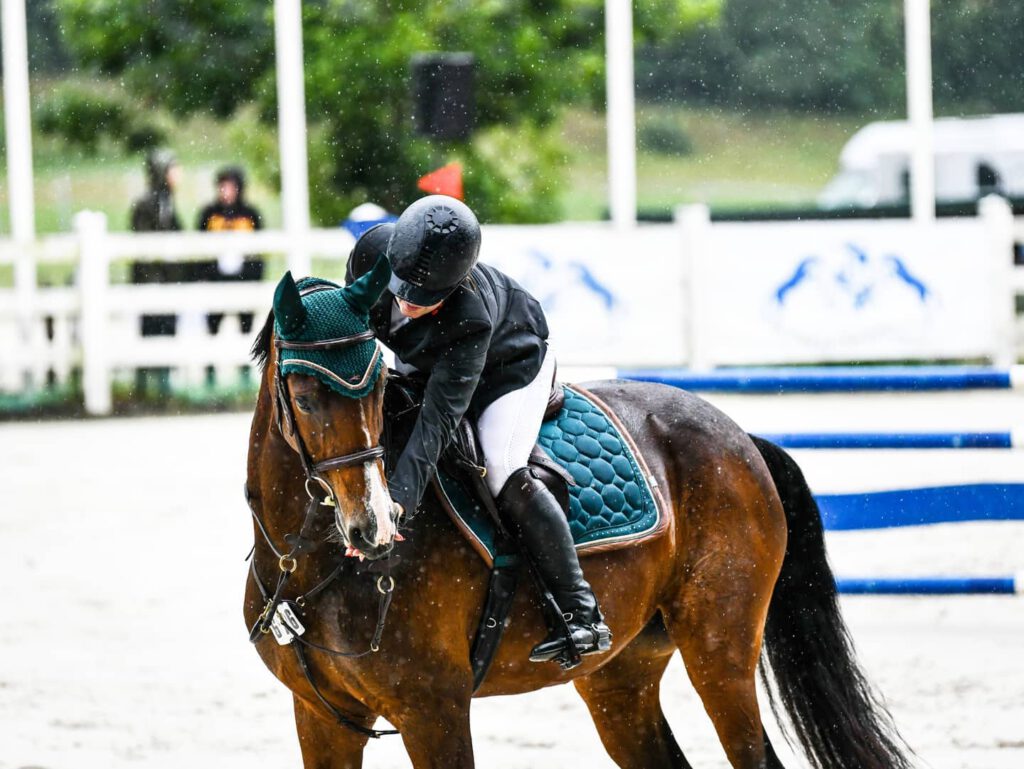Menu

Jealousy is an ugly thing. Or is it? It is a mix of emotions containing anxiety, insecurity and bitterness about someone else having the success you wish you had. And at the same time most people feeling jealousy are also afraid of losing what they have. All in all, we at Malgré Tout Media believe that jealousy in equestrian sport is a sign of three things, and one of them does not belong in the sport at all. The others can be used to move forward with yourself and your training.
The feeling of jealousy comes and goes, which is completely normal. In other words, it is okay to feel jealous if you can put it into something constructive. It is not okay if the feeling becomes so strong that you end up hurting others.
You may also like to read: Study: Why horses understand not your words, but your tone of voice
Even if it might seem like it, jealousy and feeling envy are not quite the same. You can say that jealousy is a version of being envy.
Feeling envy is when a person is in the possession of something that you wish to have. An example can be when a specific rider has won all competitions and another rider never wins anything but wish he or she had.
Jealousy is close related to the feeling of being afraid to loose something. Maybe even something you do not have yet. If you are jealous, you are feeling envy in a way that also includes anxiety. An example can be a rider who has won all competitions and you are afraid to lose your sponsors to her perhaps because you have had a bad season.
So there are two terms that are quite similar. In this article we have decided to use the word jealousy from now on.
The neurologist Sigmund Freud distinguishes between two types of jealousy. From his point of view it all comes down to love. We (at Malgré Tout Media) have tried to transfer this emotion into the equestrian sport.
The ordinary jealousy is where you compete against someone - mostly in your own mind. But perhaps also through your words. For example, you might think: “Damn, why did she get such a high score in that dressage test when I did not!?” or say to your horse: “I wish we had won that rosette.” Here you might be afraid of losing your horse or trainer because you know deep down that you may have to buy a new horse or change coach in orde to reach the top.
The projected jealousy is when you transfer the jealousy to the person you are, logically enough, jealous of. An example can be that you say: “She probably has a sponsor paying everything for her”. You say this because you, deep down, wish you were in her shoes. The projected jealousy can be an end to your own goals and dreams.
The best part about jealousy is that you can always learn from it. But it requires that you keep the emotion at an ordinary, and not projecting, level. All in all, jealousy (and also feeling envy) in equestrian sport can be a sign of three things: You do not focus enough on your own journey. You do not allow yourself to set up goals, and you forget that most of the time everybody puts in tons of hard work in order to achieve their success.
Danish mental coach, Rasmus Bagger, has previously explained these two things to Malgré Tout Media:
"In reality, mental training is the exercise of being the rider you wich to be"
“When your mind is focused on something else rather than on what is going on right now with the horse (…) then the horse experiences a different energy from the rider”

All in all, this means if you wish to be even better than you already are, then it is time to focus on your own journey and not on everybody else’s. When you focus on other’s achievement then you do not discover what worked and what could have been better in your own test. It kind of makes this jealousy feeling a bit of a waste of your own good time.
You may also like to read: 12 things defending you as an equestrian
It is okay to feel jealous occasionally, but you should promise yourself always to look forward. And not get stuck in the past. Use the emotion to look inside yourself, instead of wasting energy complaining about someone else. This is not the way to success.
The fact is that jealousy also prevents you from setting your own goals. The feeling of jealousy can make you believe that dreams are inaccessible, and you are perhaps afraid of losing by taking a chance. But you should not feel this way. To achieve a dream, it means that you have to set specific goals on the way. Realistic goals but also ambitious enough that you will move forward. Once again, we turn to Rasmus Bagger:
“When you set a goal, the most important thing is to do something to achieve it (…) It takes time and effort – that is why it is important to set a goal that really motivates you.”
Do not allow yourself to believe that others have not worked hard for their success. Because they most likely have. If you are convinced that huge success is only because of a good horse, rich parents and a sponsor you are wrong. It does take a lot of work, and you can achieve it all as well if you actually do the work.
“Most people do not make the effort it takes to achieve success. By nature, the brain is lazy. Everything you wish for, demands something of you. It takes you out of your comfort zone. The question is, are you willing to pay the price?”
- Rasmus Bagger